WHAT'S IT LIKE WORKING WITH GRANT MORRISON?
The Question Anybody Who Has Done It Will Hear For The Rest Of Their Lives. Probably.
I forget which other artist it was who first said (and there have been a few) “Welcome to the world of always hearing ‘what’s it like to work with Grant Morrison?’” Whoever it was, though, spoke not a word of a lie!
On the surface it’s a simple enough question, though what it means and why people are compelled to ask it feels much less straightforward. Why are people seemingly more intensely interested in the process of the work than the work itself? What is it about the mythic, possibly mystic, uber-bard that makes any glimpse into the arcane processes a must-know? After all, I never get asked that about any other writer, no matter their fame. Indeed, I suspect the only other writer who would inspire that question is the other arch mage of comics literature, Alan Moore. So very great is their status in our chosen medium that they sit, a’throne, like magnificent warlocks, a tempest raging in the background, facing each other across a vast chasm within which whole universes are birthed, and heroes fight and die for the orders of magik and chaos…
The reality is, of course, much more mundane, whilst also being utterly and endlessly delightful.
Grant is a fascinating, playful soul, full of deep and grounded wisdoms peppered with a kind of spectacular and winsome hyper-experience that from the mouth of anybody else would sound preposterous, and which you inevitably take as accepted because of the direct and disarming openness with which it is delivered. I can’t say that I long to be abducted by aliens, as Grant famously recounts (and very genuinely believes. There’s no artful manipulation here. It’s 100% something Grant actually experienced in a way that has shaped his entire career, regardless of whether we believe it was ‘real’ or not) but you inevitably feel that you live the most bland of lives by comparison, and begin to long for at least a glimpse of the things Grant has seen.
I also came to believe that Grant has something like an indelible memory. When the research is being done Grant has an incredible capacity for recall. The issue numbers, and specific details regarding a story in a certain Silver Age Green Lantern issue, as well as thoughts pertaining to the artist or writer at the time, fill any scripts you get. Conversation reveals that the information is logged, and immediately on hand. There’s no need to refer to the books themselves, as I would and often do have to do. And Grant’s reading is also veracious, and deep, and often obscure and revealing. I was always learning.
Around a year or so ago I went to visit Grant and Kristan, and had a truly wonderful weekend. They are working class punks, raised on a diet of free expression and protest. Unspoiled by success, and still screaming into the mindless white-noise cultural void of our age. Almost apart, and yet a part, of the mushy collective of humanity, whilst all the time empathizing with and subtly shaping it.
And I saw true, freely-given kindness to feline and human animals both. The depth of the care, the way empathy shapes, and has almost broken Grant at times, is extremely touching. The wild neighborhood cats are their tribe, and their plight a millstone.
There were times, of course, that Grant’s scripts felt extremely intimidating, because of their richness. Nothing is there by chance. Every detail has a reason. A seemingly irrelevant background detail or character might cause any given artist to skip over it, only to find out later that it had been planted there to further story elements whole issues further down the line.
You should never short change a Grant script, and I never did. In fact my mode became ‘do it all, then add a little more.’
My The Green Lantern run with Grant remains hugely important to me. Fate seemed to pull us together to do that book, and we increasingly seemed to bump into each other at random events - something that oddly stopped once the gig was up. We made it our own, and it became not just a journey through space and time, but through the history and medium of comics. It was weird, and poetic, and untethered, but somehow intimate and heartfelt. It was terrifying and huge, but also light and very funny in parts. A strange hybrid of what we both are - practitioners of a medium that in the UK takes inspiration from Europe and the US. But we’d also talk about the great illustrators of genre fare, who’s work inspired so much of what we do - Rodney Matthews, Roger Dean, Virgil Finlay, and more.
It became a progressive rock album on paper, a vast and ever-changing flight of fancy. And I ground out two seasons of 12 issues each, with no fill-ins or guest slots. It was important that we make it ours.
Joining us on the journey were two other incredible industry legends - Steve Oliff on colors, and Tom Orzechowski on letters. A perfect storm of bucket list creators for me!
If I sound ebullient it is because I was. I have Dan Didio to thank for having the vision, and for dragging Grant out of DC retirement to do it with me. I jumped at it wholeheartedly! I’ve seen it said that our run was hugely underrated, and not appreciated by some of the book’s most hardcore fans, but I think we gave a very true reading of the Hal Jordan Lantern character, and were respectful of his history and the creators that came before us. But I can also see that many of those that did love it hadn’t hitherto been fans of the character, so the audience was very mixed and somewhat different to the usual.
What was it like to work with Grant?
It was bloody marvelous.
I love Grant. A great collaborator is always a gift. Dreams are made of such stuff.
‘Poison Peach’ and ‘Eden’s End’ by Morrison and Sharp - only available on the Grant Morrison SubStack



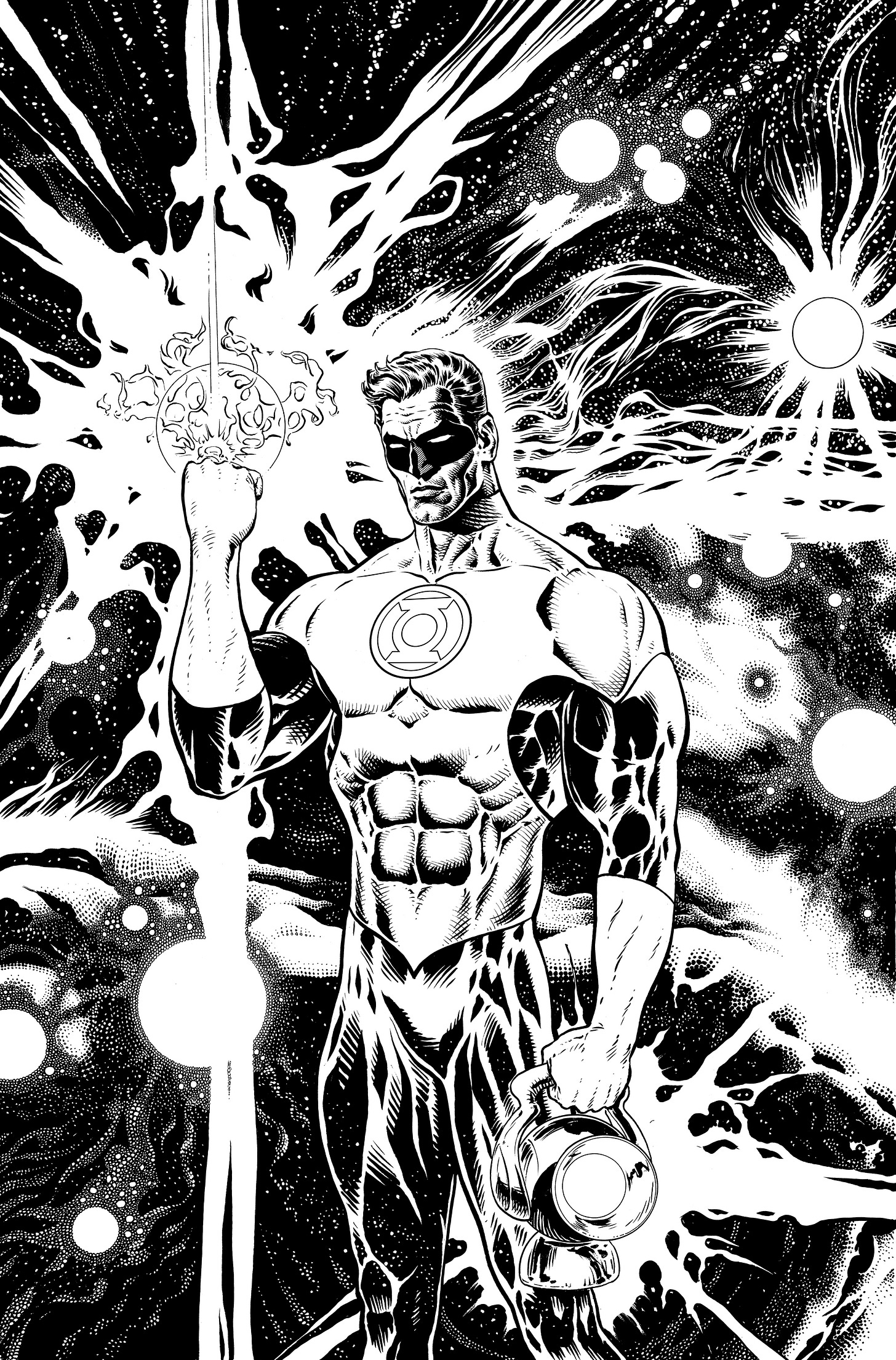
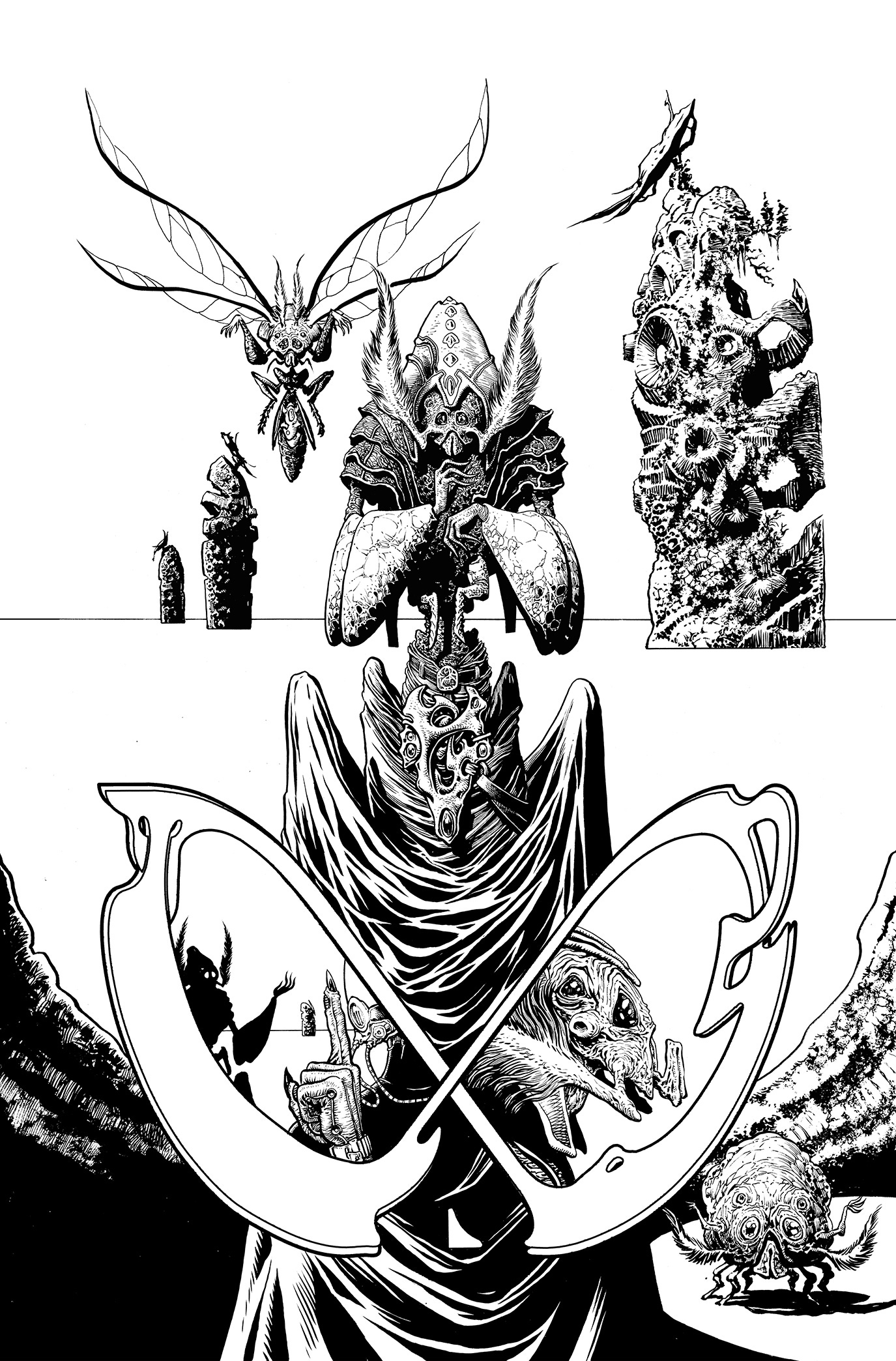
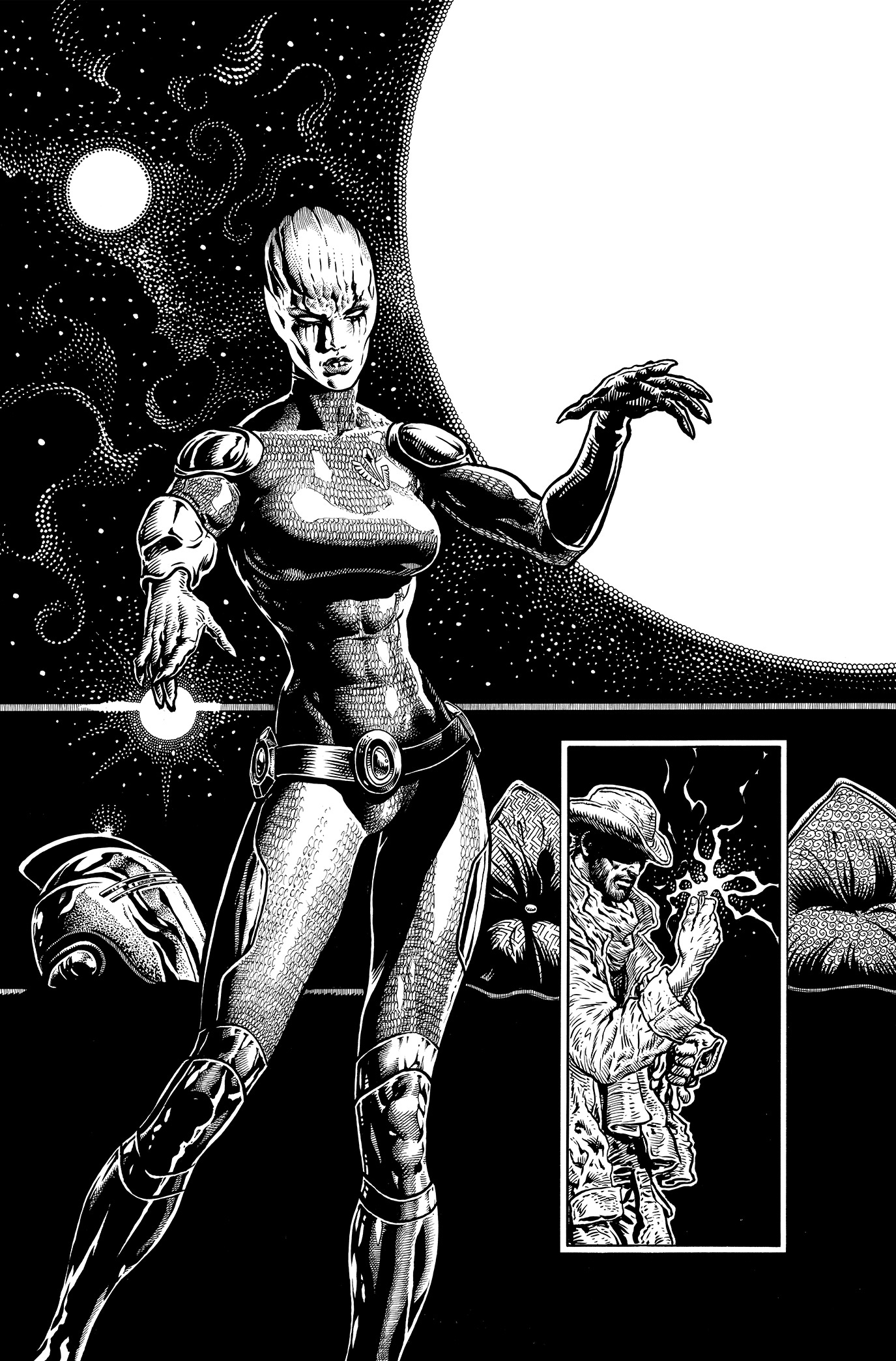
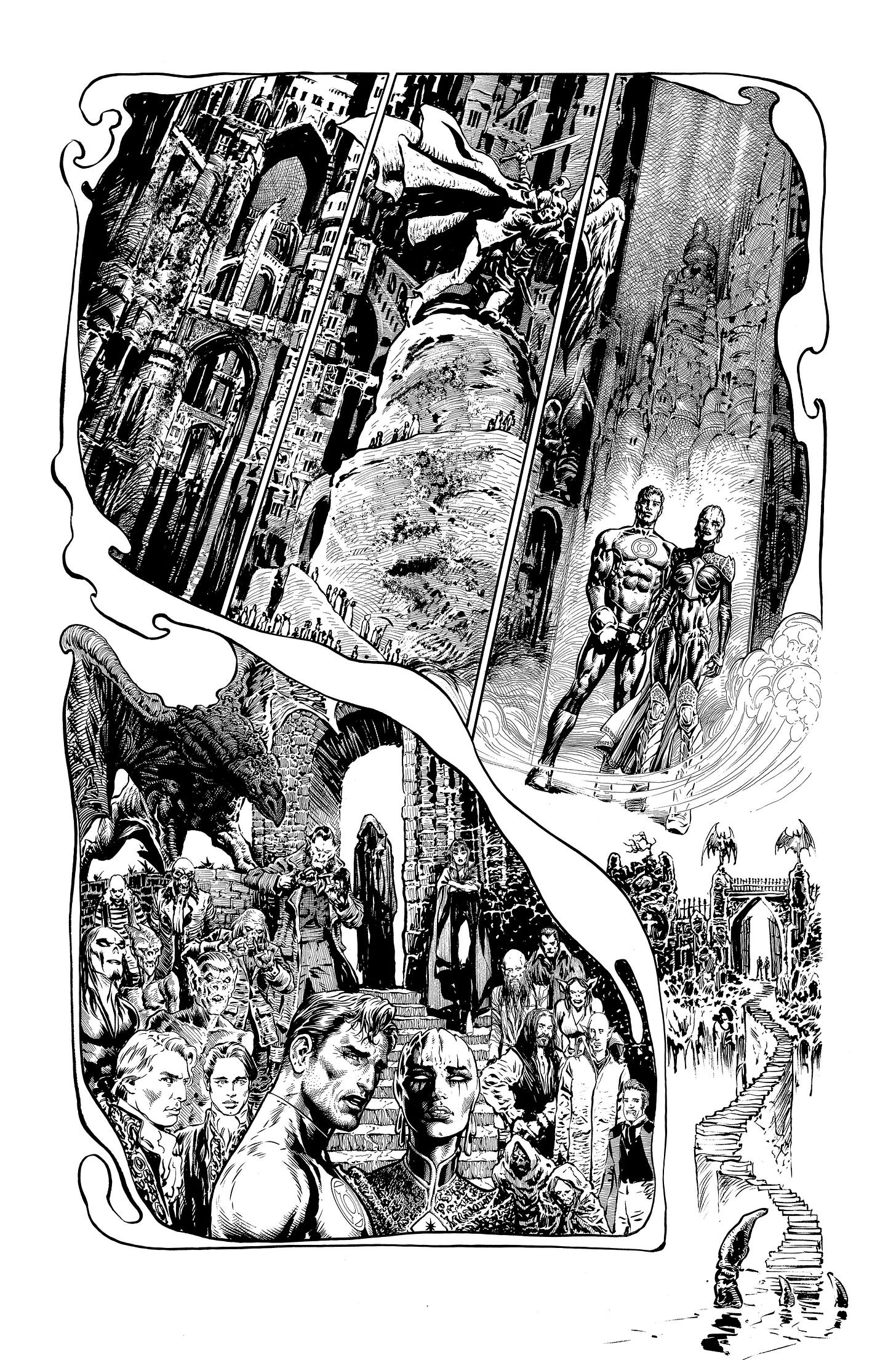
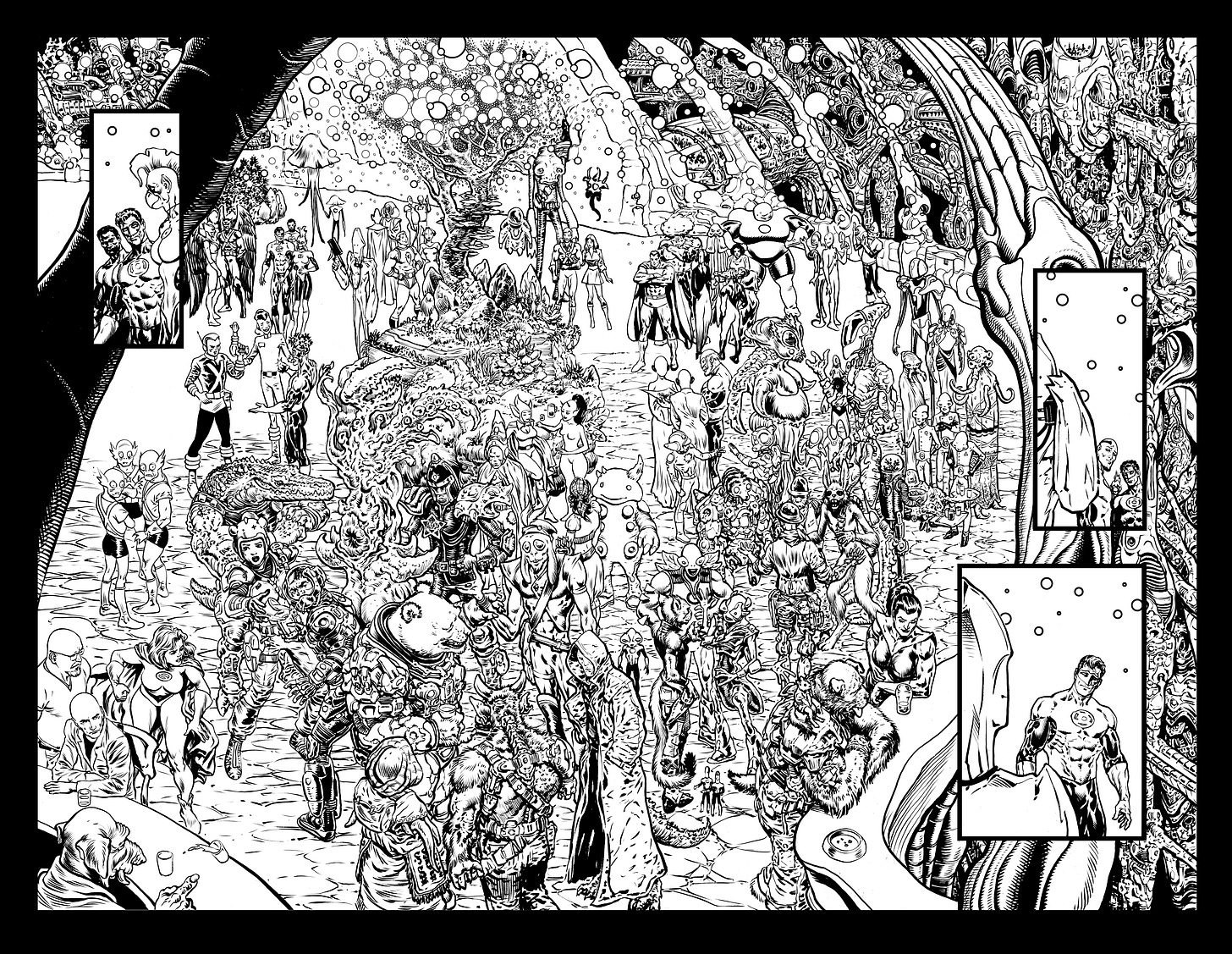
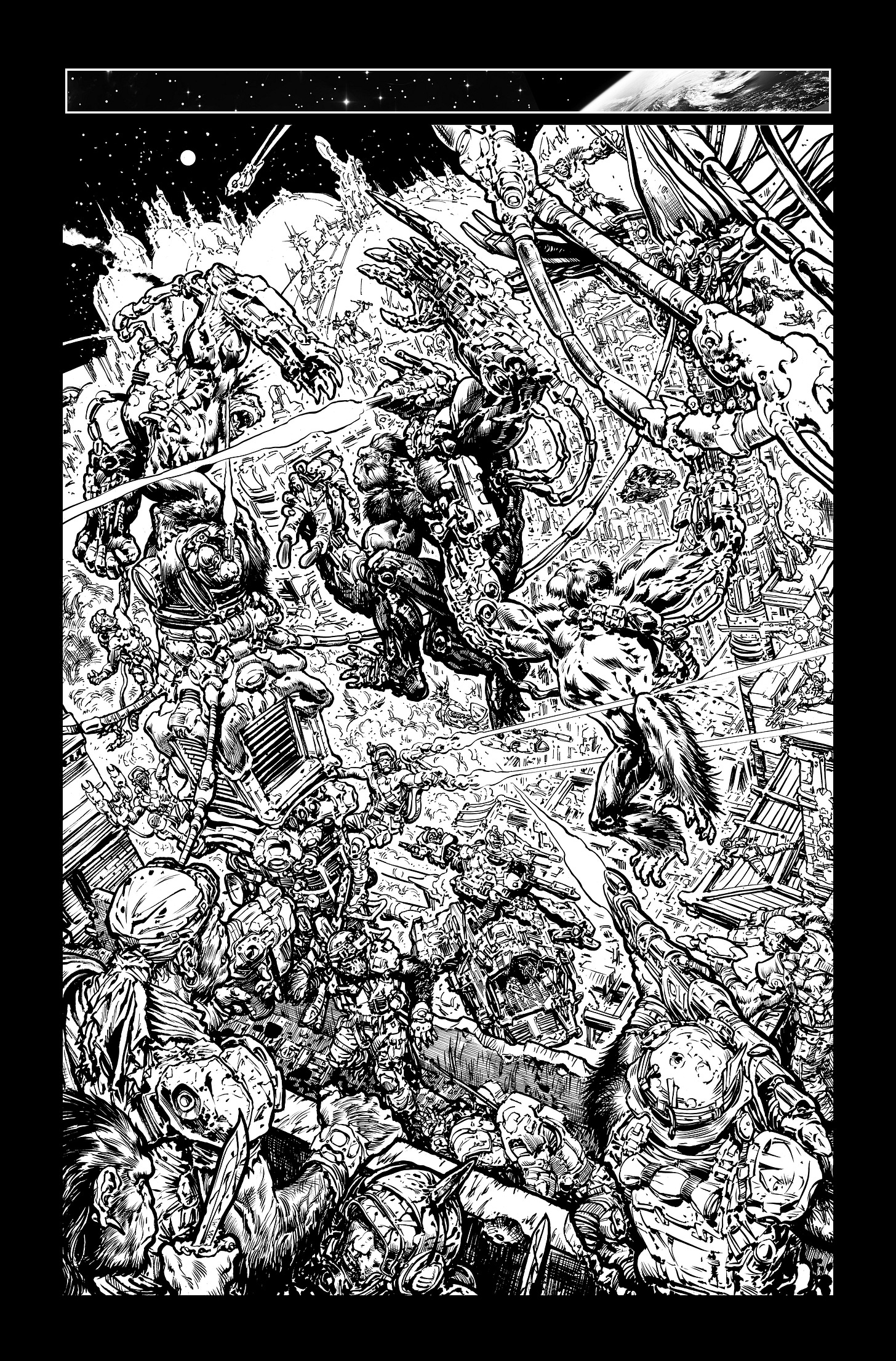
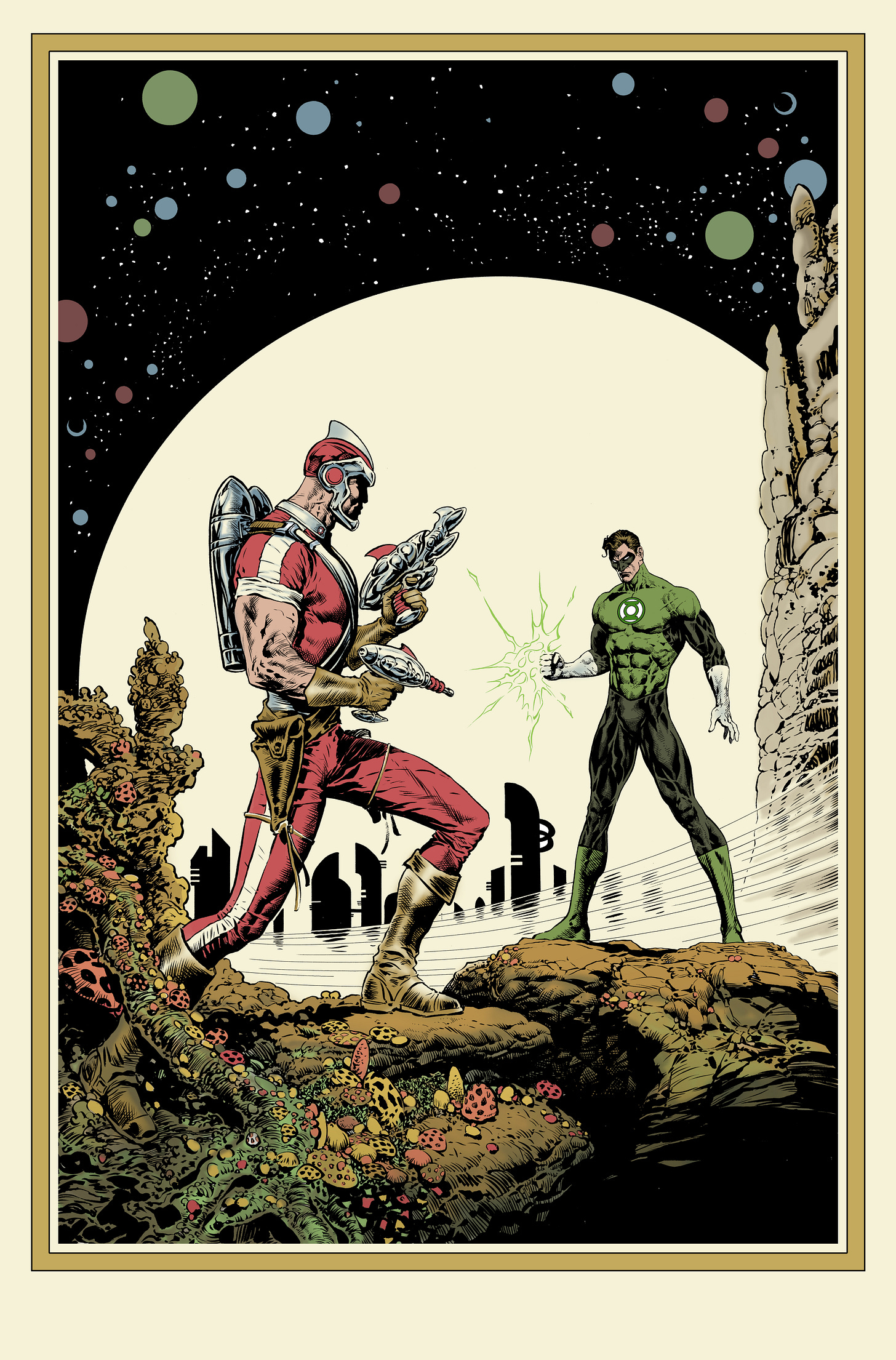
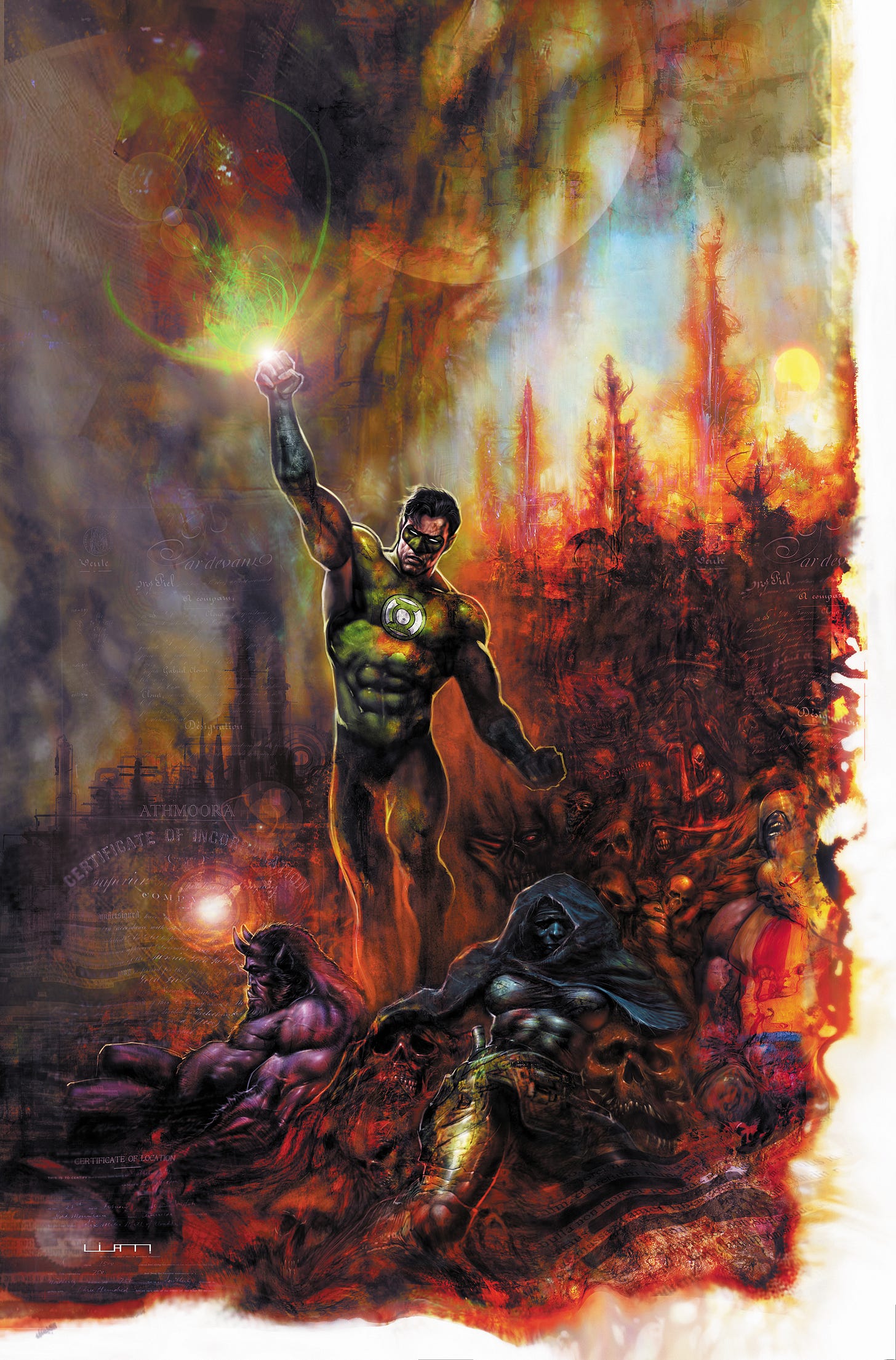
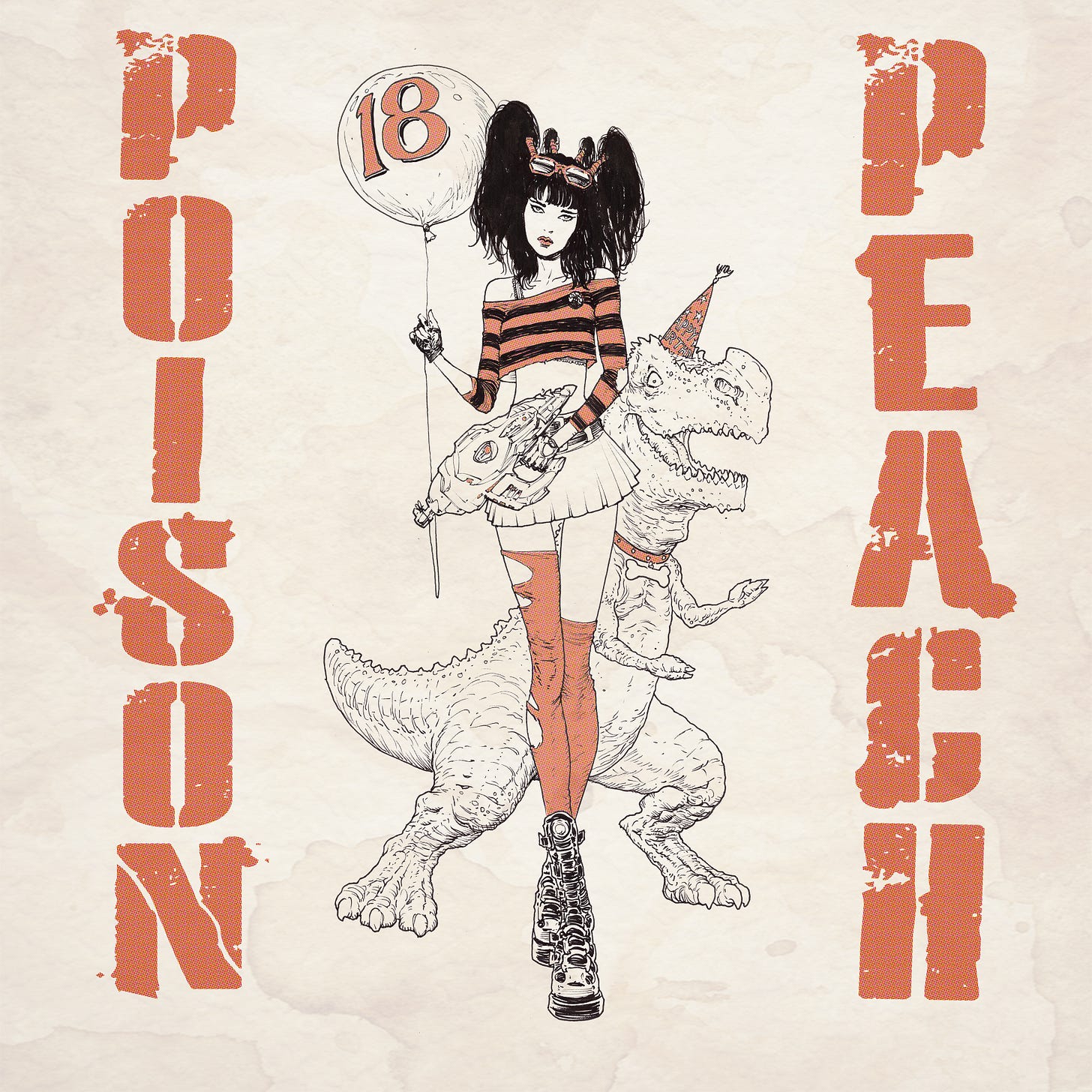
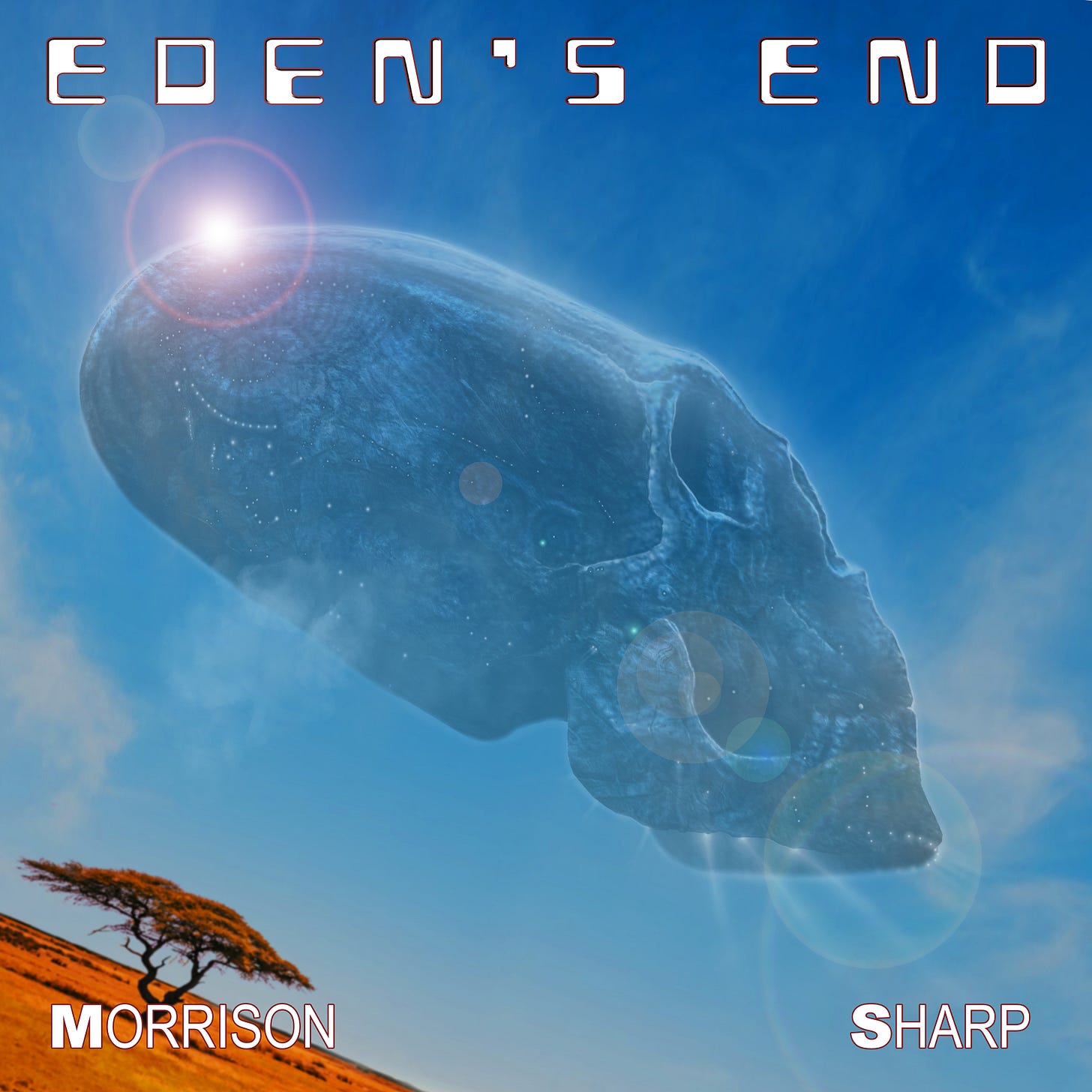
So very nice to see some of these incredibly rich pages in black and white. The colours are wonderful, of course. But there's just so much there. Thank you.
Agree. I always prefer color to black and white comics, but with artists like Sharp you sometimes miss a lot of detail.